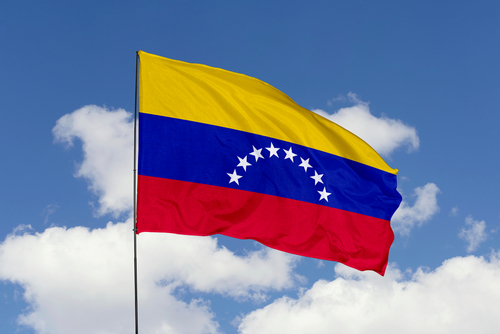
Effective immediately, Venezuelans who enter U.S. ports of entry without authorization will be deported to Mexico, according to new enforcement rules laid out by the U.S. Department of Homeland Security this week.
The announcement came alongside declarations of new agreements between DHS and its Mexican counterparts, all meant to reduce the number of people arriving at the Southwest U.S. border. Venezuelans were called out in particular due to what the DHS noted as four times as many Venezuelans as last year attempting to illegally cross the southern border in 2022 so far. Many are fleeing a growing humanitarian and economic crisis back home.
In a carrot and stick scenario, that could be considered the legal equivalent of the stick. For the carrot, DHS also declared a new system for safe and approved immigration.
“These actions make clear that there is a lawful and orderly way for Venezuelans to enter the United States, and lawful entry is the only way,” Secretary of Homeland Security Alejandro Mayorkas said. “Those who attempt to cross the southern border of the United States illegally will be returned to Mexico and will be ineligible for this process in the future. Those who follow the lawful process will have the opportunity to travel safely to the United States and become eligible to work here.”
Based on the Uniting for Ukraine (U4U) program that dealt with Ukrainians fleeing Russia’s invasion of Ukraine, the new program makes three demands of Venezuelans seeking entry to the United States:
- They must have a supporter in-country for financial and other matters
- They must be vetted by biometric and biographic national security and public safety screening
- They must be vaccinated
This process will not be made available to anyone ordered removed from the United States in the past five years or have crossed without authorization between ports of entry after the date of this announcement. In an expansion of this, if Venezuelans entered Mexico or Panama without authorization since the announcement or hold permanent resident status, dual national status, or refugee status elsewhere, they will also be denied U.S. entry henceforth.
Despite the urge to flee from troubles, DHS noted that potential Venezuelan immigrants cannot travel to Mexico to pursue entry to the United States and, instead, are expected to remain in place and apply for travel to the U.S. If approved by the lengthy process, they would be granted leave to travel by air directly to an interior port of entry, after which they could apply for work authorization.
Coinciding with these announcements, the United States and Mexico will deploy new migration checkpoints, additional resources, and personnel, increase targeted human smuggling operations, and expand their information sharing.




